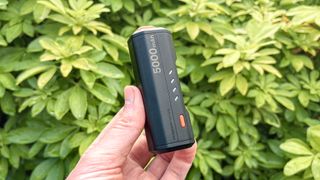Tech
Latest about Tech

71+ best gifts under $25 — affordable options for everyone on your list
By Millie Davis-Williams last updated
I found gift ideas for everyone under $25 — check out my top picks from Lego, Adidas, Amazon and more.

Tom’s Guide Value Awards: The 43 Best Tech Bargains of the Year
By Tom's Guide Staff published
The price of everything is too much these days. This is the gear we've tested that delivers the greatest value.

Amazon just announced a huge delivery upgrade affecting 2,300 US cities
By Alyse Stanley published
Amazon has expanded its same-day grocery delivery to more than 2,300 cities since rolling out the feature in August.

Best gifts for people who have everything 2025 — 27+ unique ideas I promise they haven't seen
By Kate Kozuch last updated
Our favorite, foolproof gifts for *those* people

19 best last-minute gifts ideas — editor-approved presents that will arrive on time
By Kate Kozuch, Olivia Halevy last updated
Here are the best last-minute gift ideas that will arrive on time if you order now.

Pocket rocket! This tiny 10,000mAh power bank fits in any pocket and is 32% off right now for Black Friday
By Peter Wolinski published
The Iniu Mini Power Bank crams a 10,000mAh battery into a tiny package, keeping you charged on the go. And right now it's 32% off for Black Friday.

11 tech gifts that blew us away in 2025, from MacBooks to Xbox handhelds
By Jason England published
Make someone’s Christmas

25+ best tech gifts under $100 — our top picks for 2025
By Kate Kozuch, Olivia Halevy last updated
This year’s hottest tech gifts that take it easy on your wallet.
Here at Tom’s Guide our expert editors are committed to bringing you the best news, reviews and guides to help you stay informed and ahead of the curve!


